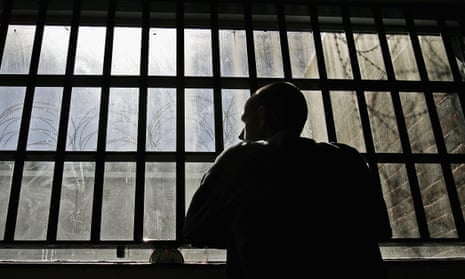The proposal by New Zealand’s minister of justice, Andrew Little, to reject tough-on-crime politics has been hailed by some as the boldest political move since the death penalty was abolished there in 1961. It’s another country turning away from an excessive use of prison, with Little pointing out that 30 years of locking people up for longer has only led to incidences of violent crime increasing.
A change of approach is beginning to work in the US, where many states have admitted that their high use of incarceration is too expensive – in monetary and human terms – to continue. Between 2008 and 2016, 35 of the 50 states reduced their imprisonment rates and saw their crime numbers fall.
Closer to home, Scotland is planning to invest more in community sentence programmes and drastically reduce the use of custody. Justice secretary Michael Matheson plans to phase out most prison terms of less than 12 months, which he says does little to rehabilitate offenders or reduce the likelihood of reoffending. It’s a call supported by Scotland’s chief inspector of prisons and an enhancement of the commitment against imposing prison sentences of three months or less, that’s been in place since 2010.
But amid the changes afoot across the globe and north of the border, there’s no sign yet of similar movement in England and Wales.
The number of men, women and children in prison when Margaret Thatcher was prime minister was as low as 40,000. Today England and Wales has 84,235 prisoners, some of whom are locked in filthy, vermin-infested cells with nothing to do but watch daytime TV. Under the Ministry of Justice’s own standards, the prison estate should not hold more than 75,858 people. A recent analysis by The Observer found a staggering 68% of prisons are providing unsatisfactory standards in at least one respect, with two in five deemed to be unsafe.
The reoffending rate for prisoners has remained consistent, proving our high use of custody is feeding crime rather than reducing it.Sentence inflation is now out of control: our report (pdf) highlights the Ministry of Justice’s own figures, which show that “longer sentences and increased recall account for up to 85% of the increase in the prison population since 1993”. The shambles in the privatised community sentence sector has also meant the courts have no confidence in using them, resulting in a fall in non-custodial sentencing.
In 2015, Michael Gove provided a glimmer of hope when he was the minister of justice by outlining his vision of a tough but fair penal system, which gives offenders a second chance and turns them into productive members of society. David Cameron also said a “great transformation” of prisons would be one of the goals of his second term as prime minister. Neither had the time to do anything about it, and indeed Gove back-pedalled a year later, saying he could reform prisons without cutting prisoner numbers.
The subsequent three justice secretaries in 18 months have been limited to firefighting as prisons deteriorate. Two major issues that require urgent attention are the disastrous part-privatisation of probation and the detrimental impact of cuts to legal aid. As the Observer has reported, the vast majority of private probation companies set up to tackle reoffending have failed to meet their targets. And after cuts to legal aid for prisoners were introduced in December 2013, suicide, self-injury and violence rose to record high levels in prison and calls to our legal advice line soared by 62%. The cuts were successfully challenged in the courts by us and the Prisoners’ Advice Service, with legal aid reinstated last week for three key areas of prison law. It doesn’t help that the shambles at the heart of government on Brexit is stymying progress on all issues. A major prison reform bill, for instance, was announced in the Queen’s Speech in May 2016 but was put on hold four months later and then dropped.It’s disappointing the new team at the Ministry of Justice, headed since January 2018 by David Gauke, has so far indicated that it will concentrate on cleaning up jails and will not even consider system change. A coat of paint and bigger dustbins will not reduce reoffending or make prison safer. The country needs a brave, radical policy shift, similar to what is happening in New Zealand and Scotland.
Long prison sentences remove any hope of redemption. The prison system we have today blights lives, costs the taxpayers a fortune, fails staff, and creates even more victims. It is only by investing in the community that we’ll succeed in reducing crime.
- Frances Crook is the chief executive of the Howard League for Penal Reform.
Sign up for your free Guardian Public Leaders newsletter with comment and sector views sent direct to you every month. Follow us: @Guardianpublic
Looking for a job in central or local government, or need to recruit public service staff? Take a look at Guardian Jobs.
